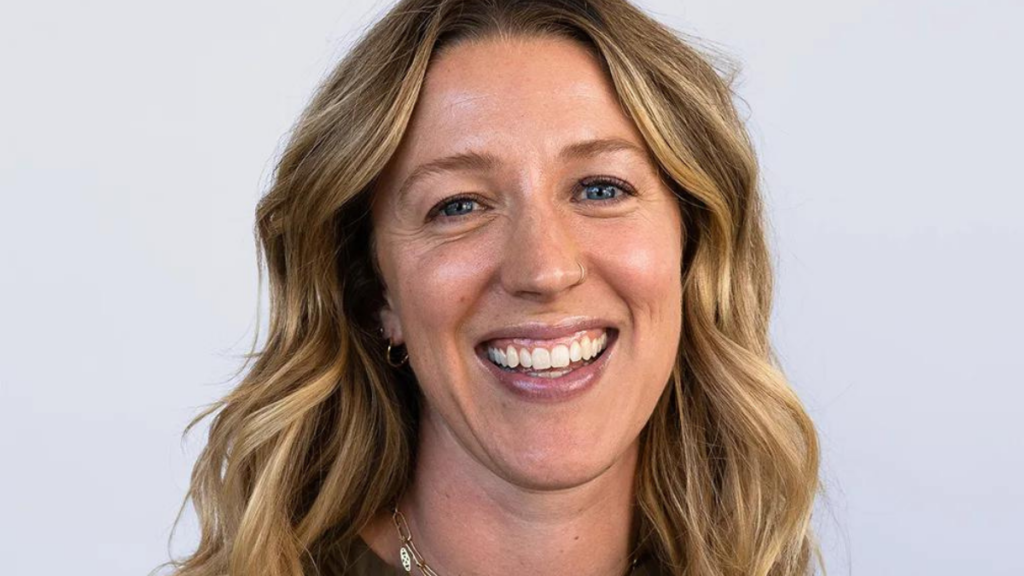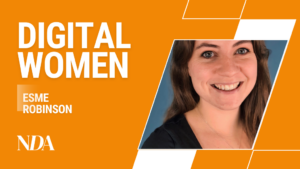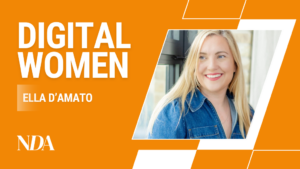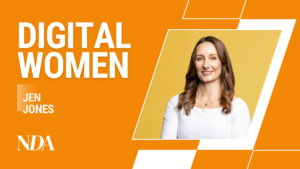Sara Caldwell has a wealth of experience in customer services, having previously worked for Asana, Reforge and Neverware. Before moving into the world of customer services, Sara was a secondary school science teacher.
What is the biggest opportunity for women in your sector of the digital industry today?
Good leaders are force multipliers for careers and companies – but there are often specific definitions of what a good leader looks like (directive, big personalities).
I feel that women in particular have the opportunity to show that there are many different ways to be effective leaders, and help show people within their organisations that they don’t need to conform to a single mould to be successful. This, in turn, will help organisations and teams be more successful and achieve their missions.
What is the biggest challenge to you as a woman in the digital industry and how are you overcoming it?
I think leadership in general, and especially as a woman, can feel very isolating. I’ve been fortunate enough to have managers and peers throughout my career that I can rely on for advice and support, but it’s also been helpful for me to intentionally invest in connecting with other people who are facing the same challenges at other organisations. I make sure I find time each month to connect with someone outside of my company to widen my circles – not only is there always something new to be learnt whether it’s within the industry or in life, but I find this to be both energising and stabilising
The best advice I got about this was to just ask. Especially when you’re early in your career, it can feel like you don’t have a lot to offer someone in a mentor-mentee relationship, but that’s not the case. First Round’s mentor community is a great way to get started.
What three things could employer companies do to make the digital industry better for women?
I would love to see companies talk more about what an equitable representation of women with intersecting identity looks like across the company and in different career stages. It’s often the case that averages hide a more complete picture of where there are (and aren’t) diverse voices in the room.
Women also have a tendency to view issues around gender equality and parity as separate from racial equality, immigrant rights, and so on. If we don’t take an intersectional approach that considers how we can understand the barriers that women face across other aspects of the identity as well, we can create incomplete or less impactful solutions.
There should also be a focus on systems, not just individuals. Often when we think about professional development or organisation cultures, we overly focus on the skills of individuals. While this is important, I think it’s equally important to talk about how the environment is helping (or holding back) individuals within the organisation.
Lastly, employers should ensure that any policy or program designed to make the industry better for women takes into account the experiences of other underrepresented groups.
What support structures and organisations are most important and effective to you as a woman in the digital industry?
Frankly speaking, friends that I’ve made along the way at each of my roles have been the most supportive. By investing in important relationships early in my career, I now have people across industries and roles that I can call on for diverse opinions, support, and general advice. There are very few challenges that I face that someone in my friendship group hasn’t seen before.
What is the biggest misconception about women and by women in the digital industry?
It has to be that it’s a zero-sum game; that somehow by investing in women, we take away from other things. Investing in women, which means investing in the range of identities that women bring to work, ultimately increases the size of the pie for everyone and has compounding returns.










